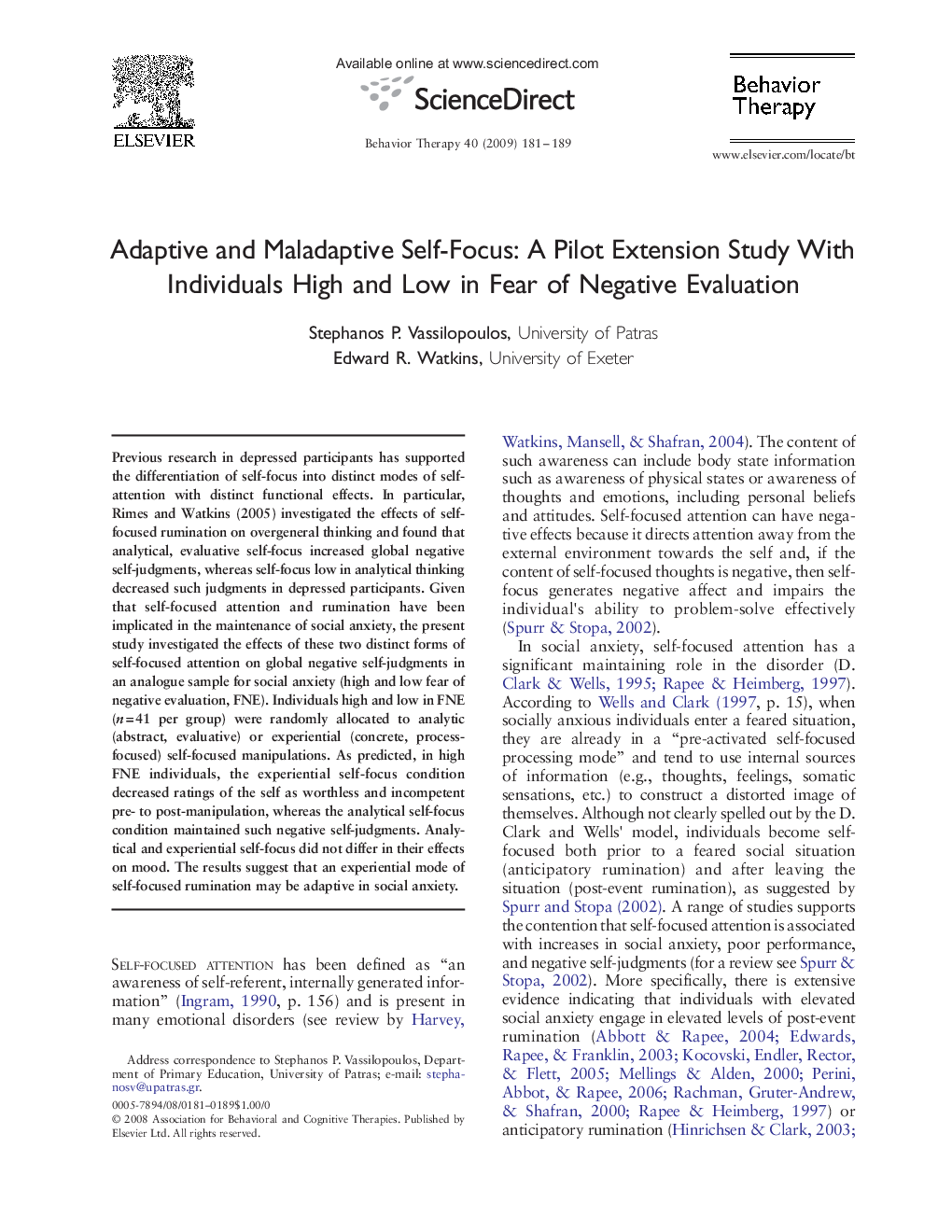| Article ID | Journal | Published Year | Pages | File Type |
|---|---|---|---|---|
| 901646 | Behavior Therapy | 2009 | 9 Pages |
Previous research in depressed participants has supported the differentiation of self-focus into distinct modes of self-attention with distinct functional effects. In particular, Rimes and Watkins (2005) investigated the effects of self-focused rumination on overgeneral thinking and found that analytical, evaluative self-focus increased global negative self-judgments, whereas self-focus low in analytical thinking decreased such judgments in depressed participants. Given that self-focused attention and rumination have been implicated in the maintenance of social anxiety, the present study investigated the effects of these two distinct forms of self-focused attention on global negative self-judgments in an analogue sample for social anxiety (high and low fear of negative evaluation, FNE). Individuals high and low in FNE (n = 41 per group) were randomly allocated to analytic (abstract, evaluative) or experiential (concrete, process-focused) self-focused manipulations. As predicted, in high FNE individuals, the experiential self-focus condition decreased ratings of the self as worthless and incompetent pre- to post-manipulation, whereas the analytical self-focus condition maintained such negative self-judgments. Analytical and experiential self-focus did not differ in their effects on mood. The results suggest that an experiential mode of self-focused rumination may be adaptive in social anxiety.
